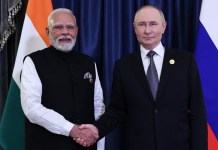India has emerged as the nation with the world’s highest suicide rate. Nearly two in every five women in the world who kill themselves are Indian, according to a Lancet research which states that country’s suicides rates comprise a massive public health issue.
- How Pakistan’s Space Agency SUPARCO beat ISRO in Space Race?
- Naked Women Driving in Riyadh: Saudi Citizens Go Berserk, Women Flees
The rate of Indian women who commit suicide has declined since 1990, but not as fast as in other nations, and presently represents 36.6% of global female suicide deaths, the report in the UK medical journal found.
Indian women who committed suicide were more likely to be married, to be from more developed states and, to a large extent aged below 35. “It shows girls in India are in serious trouble,” said Poonam Muttreja, the executive director of the Population Foundation of India, a public health group.
Experts believe this could be due to the culture of early marriages – one-fifth of Indian women still get married before the age of 15, besides enduring continued violence and facing archaic rituals which are deeply entrenched in the patriarchal society.
The suicide rate among Indian women was three times higher than what might be predicted for a country with comparable geography and socio-economic symbols, the researchers said.
“Our social norms are very regressive,” Muttreja said. “In the village, a girl is called her father’s daughter, then she is her husband’s wife, and when she has a son, she is her son’s mother.”
Muttreja said research carried out by her organisation had shown that 62% of surveyed women believed it was legal for their husbands to beat them.
The researchers hypothesised the link between suicide and marriage was due to the difficulties of youth motherhood, the low social status, the dearth of monetary independence and vulnerability to domestic violence.
Around one in four men in the world who die by suicide are Indian, approximately the same proportion as in 1990, the study said. Suicide was also the leading cause of death for young people of both genders but was worse for women.
More News at EurAsian Times
- India Needs to Restore Confidence After Dokalam Issue: China
- Armenia EU Agreement: Armenia Celebrates Joining Europe
- Chinese FM Reacts To Gen Rawat’s Remarks, Says Will Exert Rights In Doklam
- Israel welcomes Indian Air Force for Multilateral air exercise at “Blue Flag-17”




